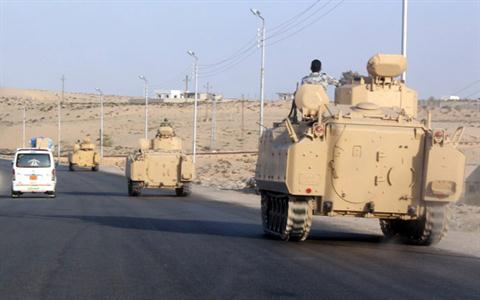
(AFP Photo)
By Doaa Farid
Thirty-eight percent of Middle East-based institutions said they expect to increase their equity allocations over Egypt within the next three months, while 19% said they would probably cut back, a survey conducted by Thomson Reuters showed.
“Many foreign portfolio investors have stayed out of the Egyptian market this year because of the economic and political turmoil surrounding the ouster of Islamist President Mohamed Morsi in July,” the report read.
The first of its kind survey in the Middle East region suggested that some institutions may return to the Egyptian market in the coming months due to the $12bn in Gulf aid pledged to Egypt “to stabilise the Egyptian economy.”
Following Morsi’s ouster, the UAE, along with other Gulf countries, announced new financial aid packages to Egypt, including $5bn from Saudi Arabia, $3bn from UAE and $4bn from Kuwait, in the form of cash grants, deposits and petroleum products.
The influx of Gulf funds has bolstered the local currency and pushed foreign reserves to their highest levels since November 2011, which the Central Bank of Egypt announced in August had increased by $4bn over the previous month to $18.9bn.
The government will depend on Gulf aid to reduce the 14% budget deficit at the end of this year, according to the Minister of Finance. However this will be no substitute for the $4.8bn International Monetary Fund (IMF) loan under negotiation since “the IMF aims to raise Egypt’s credit rating, which has been downgraded eight times in two years,” said Minister of Planning Ashraf Al-Araby in a press conference earlier in August.
Meanwhile, half of the surveyed institutions said they expected to increase their overall equity allocations to the Middle East over the next three months, while only 13% said they would decrease them.
The survey of 16 leading Middle East-based institutions was conducted by Trading Middle East, a Reuters forum for market professionals.



